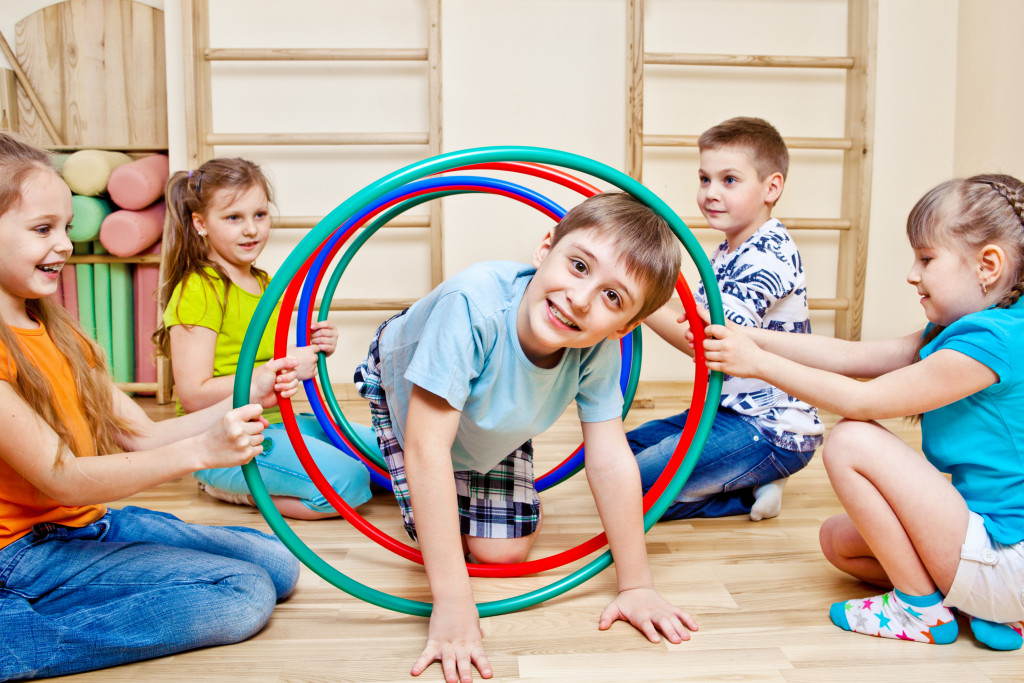As parents, it’s essential to help our children learn how to socialize with others to grow into healthy and successful adults. While this can seem challenging, especially if your child is shy, some simple strategies can help them make friends and build relationships with peers. Let’s look at ways to encourage your child to socialize more effectively.
1. Model Good Social Behavior
The best way for children to learn good social habits is by observing their parents’ behavior. Even though it might be tempting to let your child get away with being rude or inconsiderate of other people, you must set an example and model proper social behavior. This means ensuring your child understands basic etiquette, such as saying please and thank you, introducing themselves politely, and speaking appropriately.
Make sure they understand that they should treat everyone with respect and kindness, even if the other person isn’t friendly. Many children mimic their parent’s behavior, so it’s important to be mindful of your actions and reactions to situations, even why you don’t think they are watching you. If you model good behavior, your child will follow suit.
2. Encourage Your Child To Participate in Group Activities
Group activities such as sports teams, after-school clubs, or scouting allow children to interact with their peers in a supportive environment. At first, your child may feel shy or intimidated by the prospect of joining a new group but don’t worry—once they get used to the routine, they’ll be able to branch out and make new friends more easily. Participating in group activities will also help them develop essential skills such as problem-solving and teamwork!
You may also use your child’s interests to help them socialize. If they are into dancing, you can enroll them in a class with other children their age. You can even choose more interactive lessons to encourage socialization even more. For one, ballroom dancing classes will require your child to work with another partner and, therefore, must talk to one another. This is a great way to encourage social conversations and relationship-building.
3. Introduce Them To New People
One of the best ways for children to make friends is by meeting new people with similar interests or hobbies. You can help facilitate this process by introducing your child to kids from different schools or neighborhoods or setting up playdates and double-dates with your friends. This will allow them to get to know others and form new relationships.
Also, don’t forget to give them opportunities to practice their social skills. For example, you can invite your child’s friends for lunch or a movie night. This will allow them to learn how to make small talk, initiate conversations, and express their opinions politely and respectfully. Let them host their own parties or help you host larger gatherings to allow them to make even more social connections.
4. Talk To Your Child About Their Experiences

It’s essential to stay in the loop regarding your child’s social life, so make sure to have regular conversations with them about their experiences. Make it a point to check in after playdates or parties and ask them how they felt before, during, and after the event. Ask them if they made any new friends or what activities they enjoyed most.
This is also a great opportunity to discuss any difficulties they may be having with their peers, such as feeling left out or excluded. Talk about how to handle these situations, and remind them that it’s okay to stand up for themselves and ask for help when needed. Listening to your child will not only aid in your understanding of their social life but also help build a stronger bond between the two of you.
5. Celebrate Their Successes
Finally, you want to make sure to recognize and celebrate your child’s successes—big or small. Praise them for their efforts in making new friends, participating in group activities, or just for speaking up in class. Celebrating their successes will make them feel valued and encourage them to strive for new social goals.
You can also use rewards to motivate your child, such as taking them out for ice cream after a successful playdate or giving them a small gift for their accomplishments. This will provide them with extra motivation to keep trying and remind them that you have faith in their abilities. Just be sure not to overdo it, as this can lead to feelings of entitlement and a dependency on rewards.
Socialization is an essential skill for all children, but it doesn’t come naturally for everyone! Following these tips can help your kid become more socially adept and better equipped for life outside of the home. With a little practice (and patience), you’ll soon see your child flourishing in their interactions with other people!




